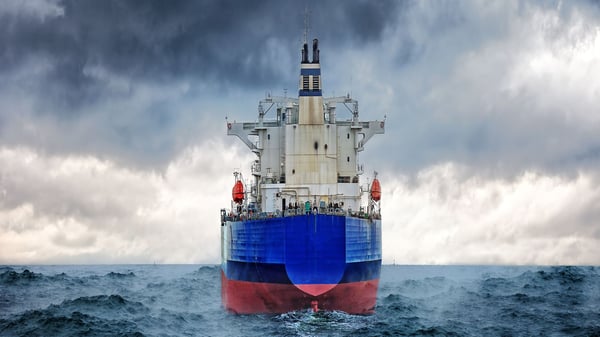

There are two versions of the Captain Phillips case. Many want to know the Hollywood version, but for those who want to know the truth, here’s what actually happened.
There had been, at the time, a lot of piracy attacks off the coast of mainly Somalia, east Africa, and it was becoming something of a problem. One of the things I learned during this case - and many may not know - is that when you talk about piracy in East Africa, you’re talking about teenage Somalis.
It's basically a business because that's how they make money. We're not talking about heavily armed pirates. We're talking about kids or teenagers in small fishing boats that take advantage of ships they can get to.
The Backstory of Somali Pirates
There were all these warnings, at the time, from all these different maritime agencies: “Stay 200 nautical miles off the coast of Somalia”. If you do that, the Somalis don't have the capability to get out further than that, so ships are safer.
By the way, none of these ships had any sort of defensive weaponry, firearms, or knives. If you saw the movie Captain Phillips, starring Tom Hanks, there were these big water cannons being shot off. The vessel was called the Maersk, Alabama. All these water cannons didn't have any of that. That was made up in the movie. The American merchant ship was totally unarmed, which made it a big juicy target. The bottom line was that they decided to take a shortcut.
They were told not to go within 200 nautical miles, and Captain Phillips just ignored the advice and went twice as close as he was supposed to. Phillips basically invited these pirates to attack the ship, and that's exactly what they did.
How Accurate Was The Movie
The crew of the ship was the one that fought off the pirates. Captain Phillips didn't do anything. In the movie, you see Captain Phillips offering himself up to be taken by the pirates, but that's complete nonsense - that never happened.
What actually happened was the unarmed crew got spoons. Some of my clients got spoons and were using them to stab the pirates. As a matter of fact, one of them got stabbed in the eye with a spoon by my client, so when he was being perp-walked, he had an eye patch on and that's from a spoon injury.
Once they got back to the United States, they got with Captain Phillips and said, “let's tell a story about this. Let's write a book about our experience.” That’s when Captain Phillips said, “screw you guys. I don't want to do anything with you guys. I'm going to do it myself.” They originally wanted to tell the story together, but Captain Phillips didn't want to.
How I Became a Lawyer For The Crew
I got a call from one of the galley hands on the vessel, asking: “Hey, do you want to represent me?” I agreed, and next thing you know, I was representing the entire crew. The defendant in the case was the shipping company Maersk, Alabama, and the staffing company Waterman Steamship.
The story was all over the news, so I knew about what had happened. One of the big focuses in the news media in the United States was the fact that the Navy Seals got involved and eliminated three of the four pirates.
That was a cool part of the story. Obama ordered them to save these people. That was my initial focus.
Related Articles
- Did 'Captain Phillips' hide the truth about Maersk Alabama?
- Lessons Learned From the Captain Phillips Case
It’s Not What Hollywood Portrayed
One of the things that I take a lot of pride in is when I investigate a case, I do it very, very thoroughly. As soon as we started looking into this case, it became apparent very quickly that Maersk and Captain Phillips had made some really bad decisions and they had made those decisions on purpose.
They made them for a specific reason, which was to save money. Basically, they were trying to take a shortcut to save money on fuel. In the end, the fight ultimately ended up being about what information I was allowed to look at and what information they were allowed to hide.
When you go overseas, there are all sorts of regulations, you have to have something called a vessel security plan. They wouldn't let me see that. There's a lot of stuff that I'm still under a confidentiality order that I can't talk about, but there were all these interesting rumors about what happened.
For instance, I'll give you one interesting rumor. The ship carried $30,000 roughly in cash, but nobody ever found it. We have no idea what happened to that money. There are some suspicions and there were rumors that some of the Navy seals took it. There was an ADOD investigation, but nothing ever came of that.
The other interesting thing is the birth records in Somalia, they are not reliable. The one surviving pirate who's in federal prison right now got convicted of piracy, and this was the first piracy conviction in over a hundred years. Authorities didn't know for sure whether he was an adult or not. They still don't. He could have been 16 or 22. They just don’t have records to prove how old he was. There were all these little weird things that went on.
Lawsuit Conclusion
As for my clients, they settled for a confidential amount. There’s a reason it's confidential.
It was an incredibly hard-fought case. I originally filed the case in Houston, Texas, it went up to the Texas Supreme Court twice, and then it was in Virginia, Alabama, and Texas, all at one time. Then there was a case against Maersk in Virginia, and a case against Waterman Steamship in Alabama. Ultimately, the whole case got kind of consolidated into Alabama, but it took four to five years.
I'm proud of the fact that, at least to my knowledge, there has not been another substantial pirate attack off the coast of East Africa since the Captain Phillips case. There's a specific reason for that. They now arm the vessels. Keep in mind, that these are fishermen primarily, but the second pirates see a weapon, they go onto the next ship. They're looking for the softest targets.
Safer Shipping Industry
Shipping companies are now taking reasonable steps, to make sure they don't get too close to shore and that the men and women on these vessels have some way to defend themselves.
The biggest thing that's changed is the perspective in the insurance markets about what is reasonable and what is not. These insurance companies now know that if they send people or ships into areas where there's piracy and they don't have a way to defend themselves, they're going to get sued and are going to lose.
This means all these mariners are safer because they're not going to dangerous places without adequate protection. Piracy is still a problem, but it's way better now than it was 5 to 7 years ago.
Related Articles
- Captain Phillips and the Truth About What Happened - VB Attorneys
- Maersk settles lawsuit brought by victims of Somali piracy
Learn more about Brian Beckcom by visiting https://www.brianbeckcom.org/
Topics: Jones Act

